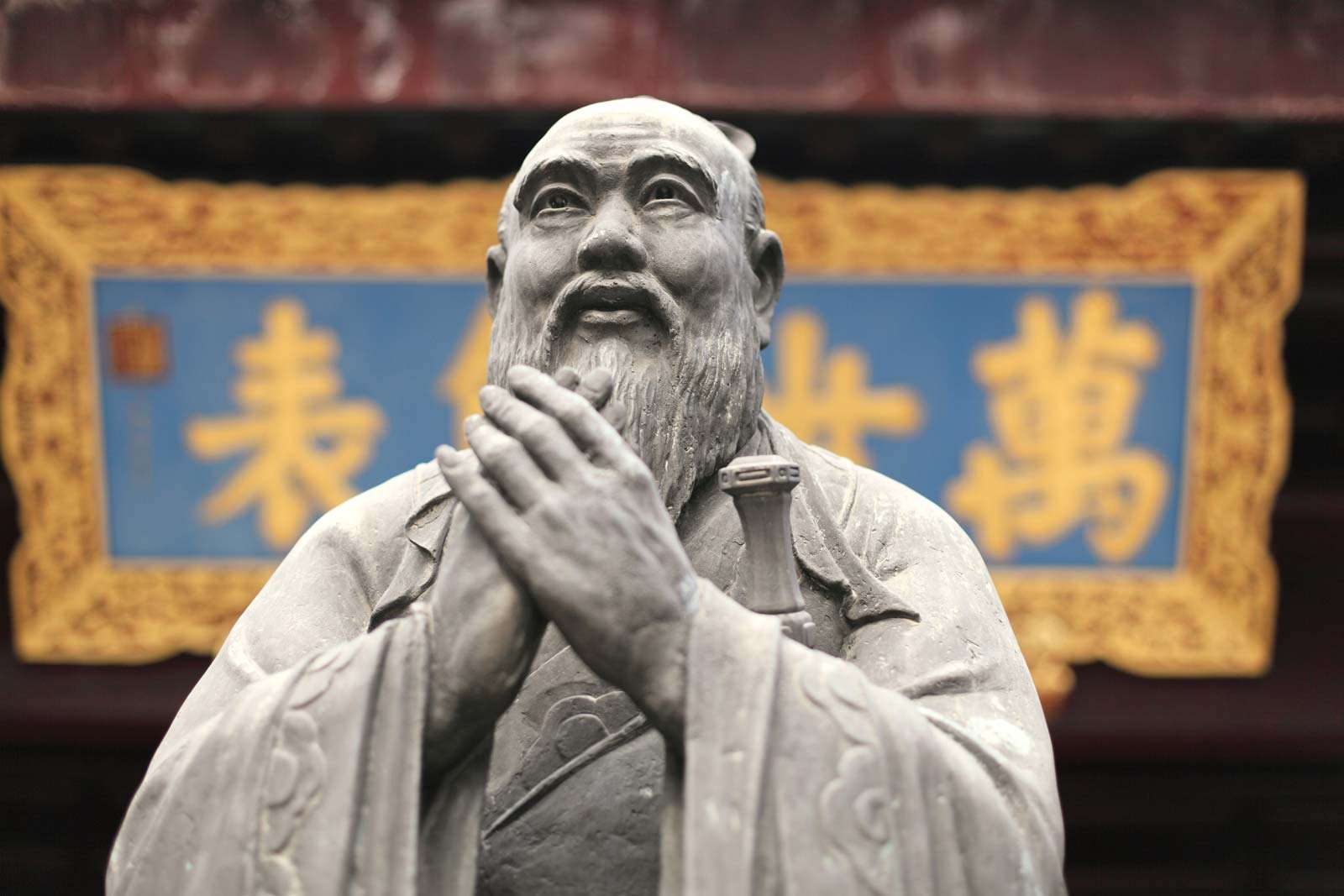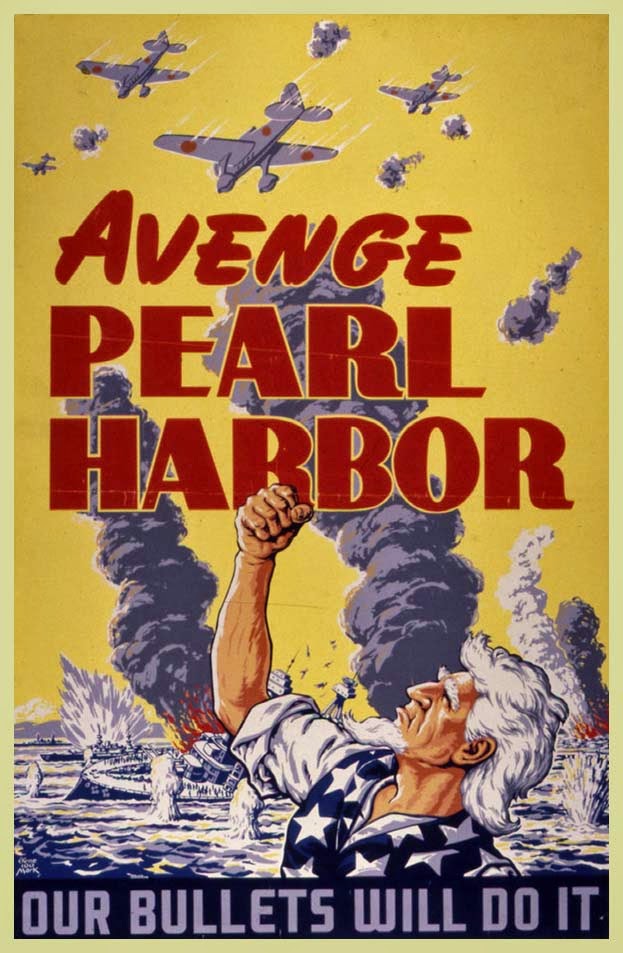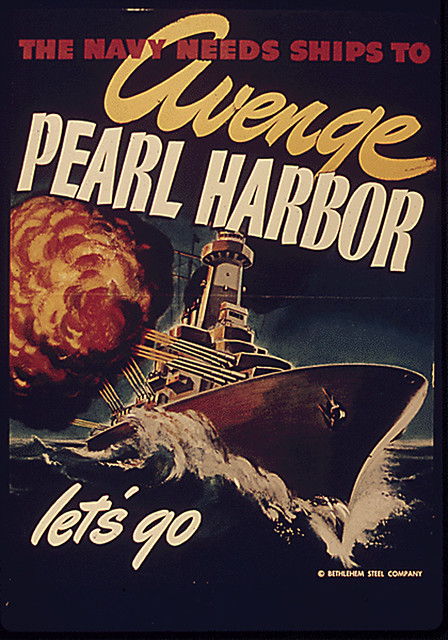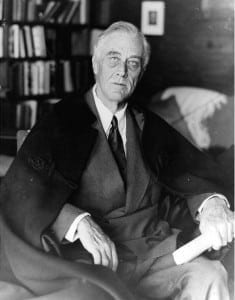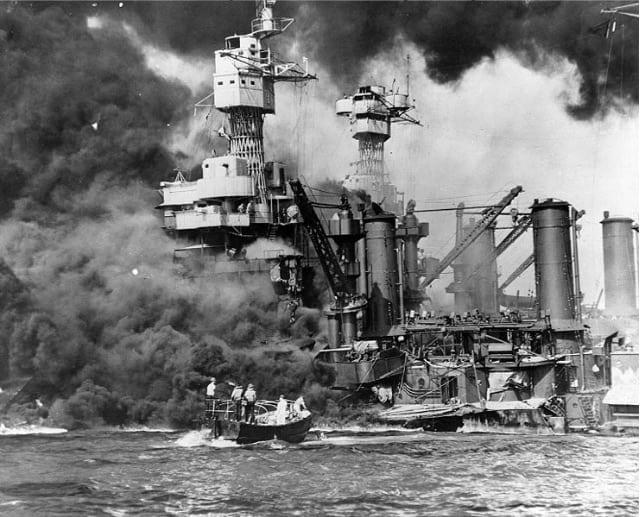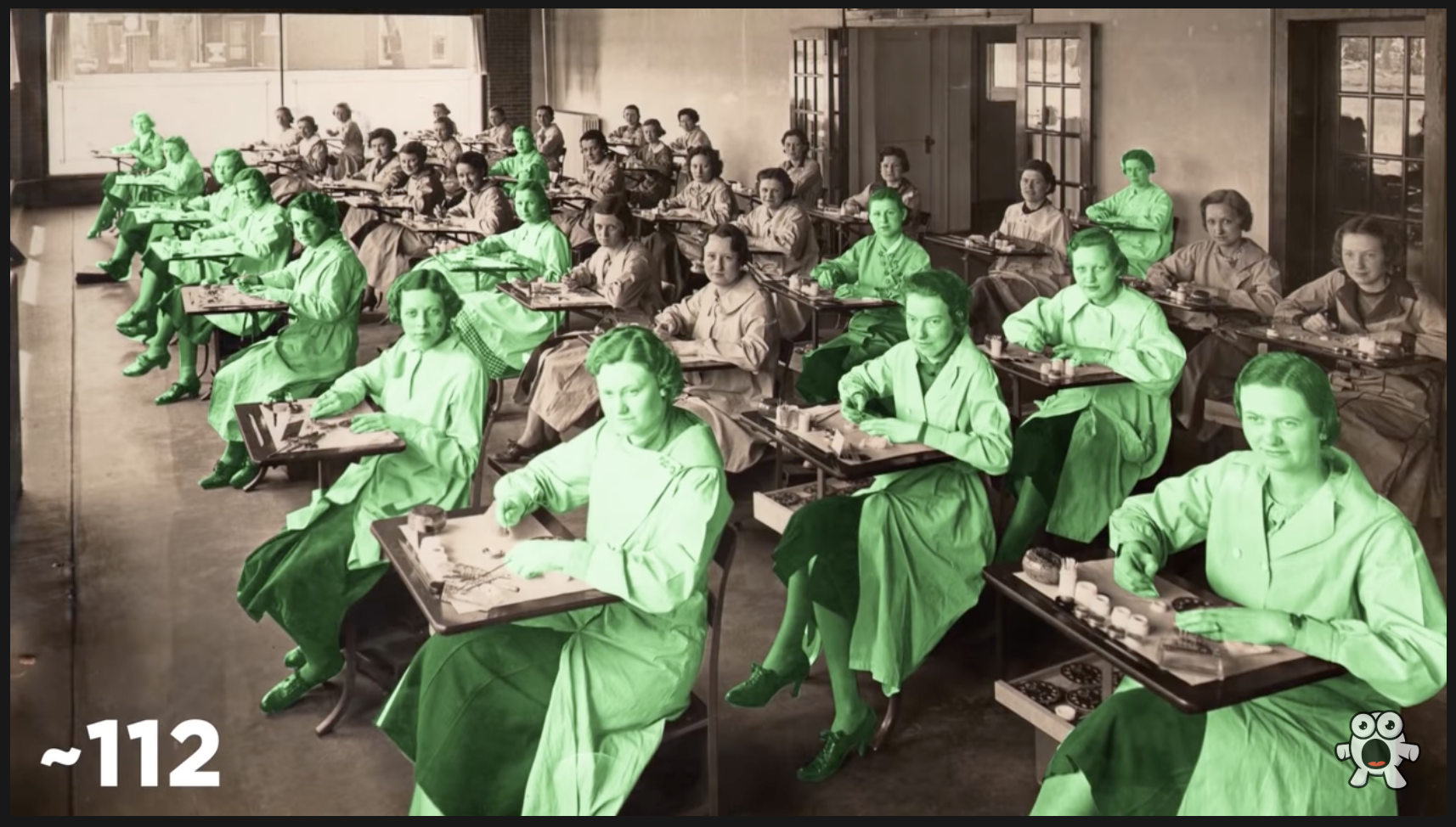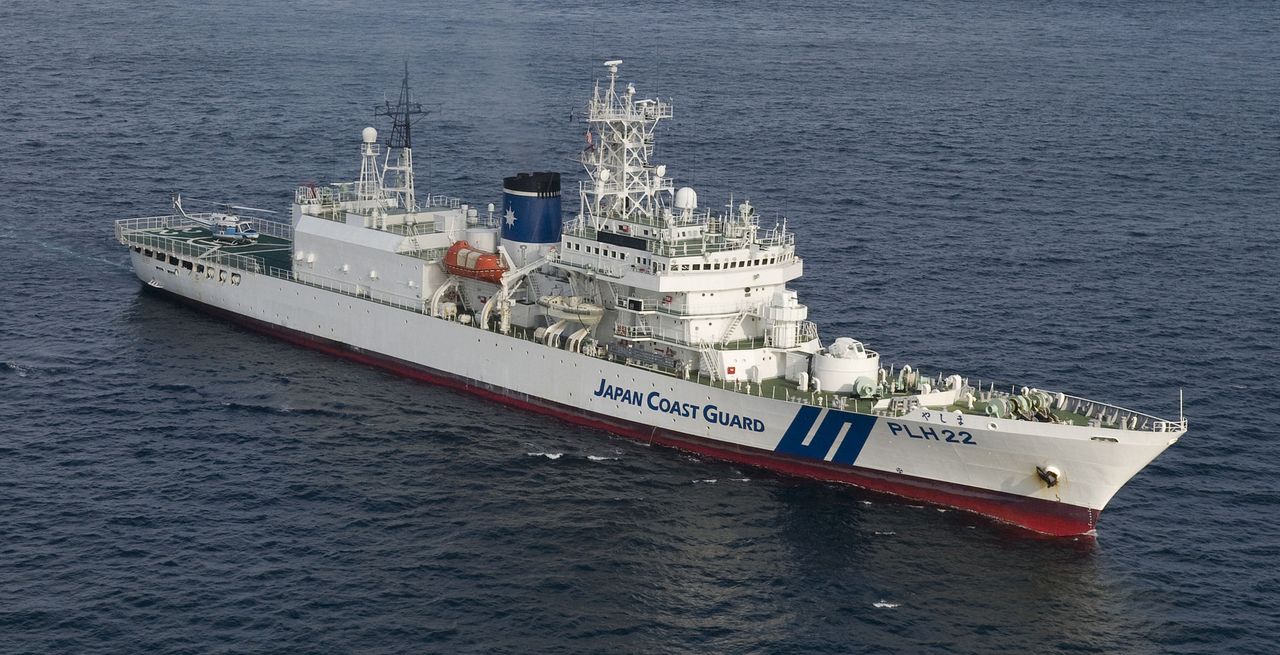Japan’s Perceptions of the Propaganda regarding the SMO
by Patricia Ormsby for the Saker Blog

Professional models (like this one) were used to present an idealised image of an heroic Ukraine ready to resist the Russian juggernaut at any cost. Russia has won the real war in the battlefield, but the Ukrainians and the West easily won the hybrid war.
The Initial News Blitz
In the immediate aftermath of Putin’s announcement on February 24 of the Special Military Operation in Ukraine, Japan’s media instituted a one-sided blitz condemning Russia of a sort that has become familiar to everyone else in the West.1 The blitz appeared to have been well-planned and coordinated in Japan, though it took about a week to eliminate the five-minute Vesti news segment from NHK’s selection of international news sources airing early each morning (this has not been restored since). In the subsequent month a person couldn’t watch any TV for more than 15 minutes without seeing more news on Ukraine or graphic blurbs announcing upcoming documentaries. Talk shows were populated with new, young “experts on Russia,” while well-known, respected experts went absent. These young professors appeared to have no knowledge of the Minsk Accords, for example, though I suspect it was simply made clear to them that the topic was off-limits. The overall impression from the media was that Russia’s incursion into Ukraine was entirely a war of territorial conquest entailing savage, horrifying brutality against innocent civilians.
I do not use social networking services, but the blitz appeared to have been even more intense there, and specifically aimed at women, judging from the effects. Virtually all the women I know in Japan responded viscerally to this propaganda. I witnessed rage at anything that reminded them of Russia. Russian signage installed for the Olympics was blocked off. One friend studying Russian told me she had contacted her teacher in Moscow and told her she could not bring herself to continue her lessons until Russia stopped that nasty invasion. Her teacher explained in tears that she had family in Ukraine. My friend should have realized that there was another side to this story. I explained to her how discriminatory the news on Ukraine in Japan was and the fact no one could really attest to the veracity of all the atrocities we were being bombarded with day and night; still she was just overwhelmed by it.
I can attest as a woman living in Japan nearly four decades that I could not watch the news without feeling that I would be a monster if I didn’t have any sympathy at all for the victims, even if I considered it all unverified and mostly likely misleading. I can’t tolerate such a level of cognitive dissonance, and just flee after a few minutes. My husband and his brother, by contrast, can continue watching with no emotional involvement, just out of curiosity to see how far the authorities will take such obvious propaganda.
Cracks in the Narrative
In contrast to the successful emotional man-handling of the women, virtually all of the men I know in Japan quickly saw through the deception and many, in fact, took umbrage at it. It was men who told me they were sick of hearing constantly about Ukraine. They pointed out how odd the unilateral condemnation of Russia was, considering this was the same sort of action America was constantly engaging in with other small impoverished countries far away that the news otherwise had no interest in. They recognized the attempted manipulation, and what they and an increasing number of women began to see behind it was an anticipated new attempt to rewrite Japan’s constitution enabling it to engage in military actions overseas.
The colonised mind of the Japanese offers little resistance to US lies, even after 77 years of American occupation. Their desire to remain in the "Western Club" trumps their need for real sovereignty.
In addition, the talk shows never really managed to shut out pro-Russian views entirely. Prior to the SMO, there had been some positive coverage of Russia in the Japanese media. The knowledge people possessed from before the conflict could not be erased. According to my husband, one commentator noted that Zelensky’s arming of civilians to help fight the invasion rendered the entire civilian population a military target under international law. The public’s perceptions of Zelensky’s role in the conflict changed. The Minsk Accords were brought up in one daytime program, catching one of the young “experts” off-guard. The general perception gradually formed among the public that there was indeed another side to this story.
Russian signage was restored at train stations in April. I have not heard recently of on-line harassment of Russians (or anyone suspected of being Russian, including Ukrainians), which was occurring during the first few weeks of the SMO. Prior to Biden’s recent appearance in Japan, the propaganda increased, but seems to have subsided since then somewhat, though the other day they aired a documentary on what a dictator Putin is.
Shrugging at Official ‘Truths’
Japan has had a long history, including times still within living memory, of life under tyranny. This tyranny has characteristics that distinguish it from European varieties, based on social systems rooted in Buddhism and Confucianism. I won’t go into it here but the result is they’ve inherited ways of coping with tyranny that allow them to lead relatively dignified and meaningful lives. One of these is their concept of “tatemae” versus “honne.” Tatemae literally means “façade,” while honne is composed from hon (main or regular) and ne (sound), and means “real intention” or “true meaning.” They recognize the necessity of the former just so that society can function smoothly without tripping over infelicitous details or long-standing conflicts. That the latter exists in contrast to the former is universally acknowledged. Confucianism gives its blessing to this system, valuing harmony above most other concerns. Everyone puts up their own tatemae and deals with their own honne as they see appropriate.

The torrent of images flooding the West and the rest of the world have been mostly produced and distributed by professional p.r. and advertising outfits, the type of people the US and the Uk have plenty of. This photo, for example, is of a young Ukrainian girl, sucking a lollipop while she holds a rifle, with a ribbon with the colours of the flag of her country in her hair. Just about everyone who sees it is impressed by it. An observer noted: "It’s an incredibly poignant image. She’s sitting in a broken window frame, looking off to her right. Brave, and ready to face whatever might be coming."
Of course, this happens everywhere. The difference here is its universal acknowledgement. Dishonest official “truths” are tolerated until they jeopardize things that really matter. Even then, people here are more likely to try to resolve the issue quietly. Japan has to go along with America to a large degree, and as long as the latter does not confront Japan over its sneaky tendency to overlook rules at the local level, they see no reason at all to confront America. And in the matter at hand, what matters to them is not the blatant propaganda or emotional manipulation, but whether or not they as a country can maintain the neutral stance that they have benefited massively from over the past half century.
Left and Right
I have heard that there is a rightward faction in Japan that favors Russia, but have no other knowledge about them. The right wing that I am acquainted with still has a territorial beef with Russia over four of the Kuril Islands (https://tass.com/world/1041010?utm_source=yandex.ru&utm_medium=organic&utm_campaign=yandex.ru&utm_referrer=yandex.ru ) and as a result no peace treaty has been signed between Japan and Russia in the 67 years since WWII.2 In general, though, Japan’s right wing tends to be isolationist. Shinto, which is largely but not exclusively right wing, is a highly localized religion, and most of the devoted practitioners I know have never been abroad and tend to look down on overseas travel. I attended a meeting of the Fuji Confraternities, a Shugendo sect centered around Mount Fuji, and was pleasantly surprised, given the moral stance inherent to any religion, that not once in three hours did anyone bring up the plight of the Ukrainians.
Japan’s left wing, aside from communist and socialist factions that favored the Soviet Union, strongly favors the US for its idealism and democratic principles. Many of them have traveled abroad, but mostly as part of groups on commercial tours, which are motivated to protect whatever façade will encourage future business. The linguistic distance between Japanese and other languages also makes it hard for them to obtain unfiltered information from abroad. The result is a romanticized view of America and tendency to give credence to Western news sources. My impression is this is true to some extent throughout Asia.
Civic-minded Seeking Knowledge
Given the cracks in the narrative mentioned above, however, there is a growing interest among the civic-minded in Japan, in particular among the left, in hearing about Russia’s viewpoint. I was happy to see a good turnout3 for a lecture by retired Ibaraki University professor Hideo Soga in Mito, Japan, on May 21 to promote understanding Russia’s point of view in the Ukrainian conflict.
In his talk and accompanying handout, Prof. Soga presented content from Putin’s speech to Russia’s citizens on February 24.4 This included the threat from NATO’s easterly expansion since 1990; NATO’s serial aggression against countries without approval through UN Security Council resolutions (Belgrade, Iraq, Libya and Syria); Russia’s inability to reach an agreement with NATO in December 2021 on vital security matters; the situation worsening year-by-year despite Russia being one of the top nuclear nations and possessing many of the most advanced weapons; further threats from NATO to expand into Ukraine, bringing in modern weaponry from nations inimical to Russia; the genocide of ethnic Russians in the Donbass necessitating a military response from Russia in accordance with UN Charter Chapter 7, Article 51; and Russia’s aim to neutralize and demilitarize Ukraine, removing the neo-Nazis, but not occupying the nation.
Prof. Soga described and illustrated NATO’s eastward expansion, gave a rundown of Ukraine’s history, with a diagram showing the percentages of different ethnic and language groups in different parts of Ukraine. He discussed Zelensky’s presidency, mentioning Kolomoisky’s backing and the events since 2014 that led Crimea to rejoin Russia and brought about civil strife to eastern Ukraine and the current conflict, with deep involvement by Joe Biden and his son, Hunter. He explained in more detail the conflict in the Donbass between separatists and Ukraine’s government, mentioning that NATO had turned a blind eye to massacres of civilians and destruction of residential areas by neo-Nazi brigades, in fact abetting it, and that attacks intensified in late 2021. He mentioned the Odessa massacre as well, providing a You-tube link.
He discussed the American Deep State, quoting Mutsuo Mabuchi, former ambassador to Ukraine (2005-2008), who pointed to involvement by Wall Street and the FRB, which had been established in 1912 under President Woodrow Wilson with the authority to issue money. He said these shadowy powers had expanded internationally since then and sought to create a “one world order” through globalization. Mabuchi, he said, considers Biden part of the Deep State.
Finally, Prof. Soga summarized his own views of the situation, saying that the American Deep State (neocons) seeking control over Russia’s assets and enabled by Yeltsin and Russia’s oligarchy, exploited the division between Russia and Ukraine and that Putin’s initial goal was to restore Russia’s assets, which he did by excluding the oligarchy, renationalizing privatized assets and rebuilding Russia’s economy. This, he said, made him enemy number one of the Deep State, whose overriding task became to topple him somehow. This led them to expand NATO eastward, with the Deep State camouflaging its goal of world domination under nice names like globalization and democracy. Putin, he said, was justified in resisting its infringement of nations’ right to independence. For Russia to maintain its independence, a buffer zone, he said, would be necessary, with Russia surrounding itself with friendly or neutral states. At the time of the Soviet Union’s collapse, NATO was supposed to have recognized this. He said that far from recognizing these needs, Zelensky’s regime promoted expansion of NATO into Ukraine and was fanning the flames of division between the closely related Russian and Ukrainian ethnic groups. This, he said, justified Russia’s military response.
I note he did not bring up the biological research laboratories or Zelensky’s stated aim for Ukraine to acquire nuclear weapons.
More Work Needed toward Fuller Understanding
I attended Prof. Soga’s lecture with the hope of learning how people in Japan with some degree of receptivity to non-mainstream points of view were perceiving the situation in Ukraine, and I was well rewarded. In the discussion following Prof. Soga’s presentation, I could see that the media blackout of anything from Russia’s point of view had resulted in major gaps in people’s understanding, and I was able to offer up some information in addition to Prof. Soga’s, but I held back to avoid dominating a discussion I mostly wanted to listen in on. They had the impression that Russia was meddling like America does in countries it has no business in, likening it to Japan if it were to intervene in China on behalf of the Uighurs, but Prof. Soga’s presentation went a long way toward correcting that misunderstanding. There was the question of how the Azov battalion could be Nazi if Zelensky was Jewish, in response to which I explained that the victims of the Nazis were not limited to Jews, and described the Soviet Union’s experience in World War II, where for example, my Russian teacher’s mother in Belarus was forced to watch her own husband’s execution by the invading Nazis despite not being Jewish. The ladies attending were also under the impression that Western countries enjoy more freedom of speech than elsewhere. I told them the situation had changed and there is a lot of censorship going on in Europe and America now. They had not heard that before.
That kind of news comes as a shock to people, who will be inclined to return to and believe in more soothing sources, but if they know this dissident idea exists, they may come to see evidence that what I’ve told them has truth.
Overall, the discussion focused on concerns that Japan might be persuaded to become involved in the conflict, and I think even from a global perspective the most important thing for the Japanese is to be alert to that possibility. In light of my conversations with other people in Japan as well, I expect there to be considerable resistance within Japan to being dragged into a conflict with Russia.
It, of course, remains to be seen when push comes to shove from America, if what the average citizen thinks will make any difference anyway.
After the lecture, I had a chance to talk to Prof. Soga, and he asked me if I knew what percentage of America’s budget goes to the military. I didn’t have an exact figure—in the ballpark of “absolutely enormous.” He asked, “Why can’t the American people address this? Why is no one there discussing this? This is the root of all the pressure for a war in Ukraine.” He wondered if, like in Japan, the problem was people are interested in nothing beyond their own narrow familial and social circles. I replied that that was not as much the case in the US as in Japan to focus intensely on one’s own group to the exclusion of all other considerations.5 In America, I explained, the “defense budget” is something no one can criticize from either side of the political spectrum because they’d be seen as opposing a “strong America.” It’s something no one can touch.
Notes
1Japan has identified as “Western” since the Meiji Era more than a century ago, when it embarked on modernization and began emulating colonists’ successes rather than becoming another passive victim. In particular, it admired Germany, from where it derives much of its scientific terminology.
2A friend well acquainted with the matter says the politically dominant LDP party has made moves toward a peace treaty, but each time America quickly scuttles it.
3About 20 people. Given what has happened in response to COVID over the past two years, this is big. The Japanese believe in self-restraint for the greater good, so this demonstrates real interest, and the participants will share what they learned with their social circles.
4On YouTube here: https://www.youtube.com/watch?v=1qS6J-WbTD8 and a Japanese translation of the text is available here: https://www3.nhk.or.jp/news/html/20220304/k10013513641000.html I think it is significant that NHK provides this translation, but am also grateful to Prof. Soga for pointing it out. On TV, we typically see Putin frowning and moving his lips while hearing the newscaster give an unfavorable interpretation of what he is saying.
5Thorsten J. Pattberg has catalogued a few of the absurdities this can lead to in his series of articles on Japan (latest here: https://thesaker.is/top-guns-kishida-and-us-biden-showdown-with-russia-and-china/). In addition, Japan has relatively little volunteerism, and social injustices wind up ignored with the victims forced to fend for themselves. That’s a downside. An upside is more stability in society.
The views expressed herein are solely those of the author and may or may not reflect those of The Greanville Post. However, we do think they are important enough to be transmitted to a wider audience.

Did you sign up yet for our FREE bulletin? This work is licensed under a Creative Commons Attribution-NonCommercial 4.0 International License ALL CAPTIONS AND PULL QUOTES BY THE EDITORS NOT THE AUTHORSRead it in your language • Lealo en su idioma • Lisez-le dans votre langue • Lies es in Deiner Sprache • Прочитайте это на вашем языке • 用你的语言阅读Brutal. The Truth About Japan (and Germany). From Tokyo University.Please make sure these dispatches reach as many readers as possible. Share with kin, friends and workmates and ask them to do likewise.
before you come to study in Japan or East Asia. Short lecture from Tokyo University on the stagnation and decline of Japan under US total rule. Blatant parallels to the US vassal state Germany. 2022/04/02
[Transcript] Hello! Dr. Pattberg here, from the ‘Todai‘ – also known internationally as the University of Tokyo.Today I want to talk about Japan as a US satellite state and what US hegemony means for the situation in Japan, the Japanese economy, culture and language.I had been studying here at Tokyo University for my doctoral studies – namely here, at the Historiographic Institute… I had worked on and researched the translation history of Buddhist terms. The Institute is not far from the Akamon Gate, the “Red Gate”, the famous sight often seen on postcards. The Historiographic Institute protects historical writings; it’s some kind of super-secret library. It’s all underground, of course, and you can only get in there with an ID. I don’t think many people know this, but most elite universities have underground passages and catacombs for miles. Ancient writings are stored there, often dating back to the 16th century. Now you might protest: That wouldn’t be possible at all. Something like that could never happen to us in Europe. It would be unimaginable robbery, misinformation and historical distortion! But that’s exactly what happened here in East Asia. The Europeans, and later the Americans, turned everything inside out here. We can also say that the West completely took the Asian concepts and names and rebranded them. Confucius was at one time a Christian “saint” who supposedly knew about the Flood. The Taoists were all [Hellenic] “philosophers”. The Buddhas, or Fojia, also became “saints,” and their wisdom was declared a “religion.” The methodology is almost entirely western. As is well known, Christianity was named after Jesus Christ. So in China, the old Katai, they desperately sought out a miracle figure from the Ruxue. Ruxue is a Chinese wisdom school; a school of thought much like Plato’s school of thought. Actually, the real name is ‘Ru’ – but of course the missionaries really wanted to find a Christ figure somewhere. And then they came up with the well-known Kong Fu-Tze, he became the namesake. ‘Ru’ flew out; ‘Kong’ came in – and became Kong-Fu-cianism. With such a brutal translation strategy, the Europeans flattened and westernized all the stories of Asia. That is why George Hegel postulated the ‘end of history’ even then. He believed that nothing and nobody could stop the Europeans.
For example, Gottfried Leibniz, long before Hegel, had seen through English language imperialism very well. That’s why Leibniz called for the Germans not to adopt foreign words under any circumstances, but to rename everything in German abroad. This is the only way the German Reich – the German Empire – could expand. Which then happened. After all, the Germans got a colony in north-eastern China.
So now back to the present. I am here in 2022 at Tokyo University speaking about Japan as a US satellite state. The US burned Tokyo to the ground during World War II and dropped atomic bombs on Nagasaki and Hiroshima. Since then, Japan has been a vassal of the world power USA, and had lived so relatively well because: it's an important colony in Asia. There was a veritable economic miracle here in Japan; just as we were allowed to experience in defeated Germany. A bombed-out country needs be rebuilt? A lot has to be invested, a lot of work and sweat, and of course the economy is booming as a result. Unfortunately, the main beneficiary was not Japan, or Germany, but the victorious and occupying power USA. Japan got pretty strong in the 80’s and got a little cocky. The USA sanctioned all areas of life, cultural exports, goods and Japan’s energy supply. Everything collapsed here and Japan lost 40 years of development, they say. They have been more or less standing still for 40 years. But since the collapse of the Soviet Union in 1991, the United States had suddenly become the undisputed sole world power. And since then Japan has been really tortured, harassed, and the country kept small on all levels. Today, in 2022, we have reached a new low. The US has become an empire of sanctions and punishments. The Japanese are not allowed to work with China; they are not allowed to work with Russia; they’re not really allowed to work with Europe, or India, or South America. And if they do, on a small scale, then only under American supervision. So what has been going on here in Japan for the past 3 years with this Corona hoax is starting to look ridiculous. And although Japan is not actually experiencing a deadly pandemic, Tokyo has been forced for three years to walk around with ridiculous paper masks on its face and hassled the population into being vaccinated three times with Jewish gene–injections from US Pfizer – a scandal! The Japanese could have developed their own vaccine if they were allowed to. Unfortunately, Tokyo has no choice. It has to go along with any madness. Now the US is planning total war against Russia and China, and preferably Iran at the same time. But let’s remember that Russia and China are two important neighbors of Japan. You could return the favour. We could work together here. Japan could have gotten rich from China long ago, but no – the US held it back. Japan must not be sovereign and must not meet and trade with other sovereign Asian partners. Now Japan – by order of the US, which commands the UN, the WHO and NATO – had to lock down its population for 3 years; So stay in your apartment, work from home – “remote office” – including all companies and schools and of course the universities: Everything closed! So what do people do when they have to sit at home in isolation for 3 years, 127 million Japanese? That’s right, the Japanese sit at home and log on to the Internet. They use US Google, US Amazon, US Youtube, US Twitter, US UberEats (to order food). They use US Zoom to hold conferences. All email traffic here in Japan is handled through US corporations: US Hotmail, US Google, US Yahoo… all American. We may be facing the greatest US imperialist prank in world history. In contrast, the opening of Japan by American gunboats in the past was just a puppet show or trivial offense. Of course, the world rulers do not call this “imperialism” or “foreign rule” – no; they call this great rape of the earth’s population ‘The Great Reset’ or ‘The Globalism’. But that’s all nonsense, it only goes in one direction: from the USA to the whole world, and nothing goes back. Japan, but also Germany, don’t even have 1% of the funds that America has at its disposal to snap[break] the other countries. There are countless military bases around Tokyo – all American. The consulate is a district in itself. There are also 86,000 US troops stationed here, complete with nuclear submarines and aircraft. “Only” 53,000 soldiers are stationed in Germany, but still. Neither Germany nor Japan should dare to send and station their soldiers in the USA. And neither should Germany and Japan dare to utter any threats, demands or even sanctions against the USA. Can you imagine what would happen to us then! So it’s a total one-way street. The US can do whatever it wants; and we are only receivers, never the senders.Conclusion: The Japanese are currently being paralyzed. They’re being completely Americanized right now. And these [face] masks are a sign of submission. The countless MacDonald’s, Starbucks, UberEats, iPhones and [Apple] MacComputers… And the universities have also been infiltrated. If you want to become a professor here, at Todai, you have to have studied in the USA. Basically, Japanese words – or Asian words in general – are undesirable in world science and are suppressed. They are either translated straight away (into European languages) or they are marked with special formats, special characters and warning labels – something foreign! Japan is more dependent than ever, and under American total domination – especially under the global financiers, the dollar system, the sanctions, the extreme propaganda -; it is very difficult to establish bilateral relations with other states, and this also applies to Germany. Oh yes, I almost forgot: As in Germany, all top Japanese politicians and companies are screened. There is no more reciprocity. Americans are actually naked. They don’t even bother to hide their secret work anymore. It’s about total control. The Japanese cannot even feed themselves. That is forbidden. They have to import massively from America, or from American partners, and live under fear, as they did before World War II, that if Tokyo steps out of line even once, food supplies, energy supplies, bank transfers and trade will be immediately halted. Just look at what the Americans are doing to Russia right now. I’ll tell you the truth: All Japanese professors who wanted to become somebody had to go to the USA for screening and baptism of attitude. All German professors who wanted to become somebody had to go to the USA to show their loyalty. That’s how it is. That means any American here can just walk into Tokyo University and is treated like a God. We Germans or Europeans stack way below in the hierarchy. And also Japanese who went to the US and were trained there can come back and are then treated better than the native Japanese. Yes, the overseas Japanese (who bothered to return) get the big jobs. This is very reminiscent of a military hierarchy. So is it worthwhile for Europeans to study or do research in Japan? The spontaneous answer has to be ‘no’, because they have to learn Japanese first, which is actually almost impossible if they haven’t started from childhood. But the Americans don’t need to learn a word of Japanese. Even the US diplomats here in Tokyo give a sh*** about Japanese. It really is like that. The Japanese must all learn American – in their own country! – [American] to be able to communicate with the American occupiers. Fewer and fewer Japanese are learning German. Don’t believe the figures from the DAAD or the Federal Republic of Germany government. They lie so that the funds requested are approved every year. In truth, the number of German courses in Japan, but also in other countries such as China, has halved in the last 10 years. We Germans share a fate with the Japanese: we withdrew and became autistic. We became more specialized and hoped that our goods and ideas would be taken up by the world rulers overseas, discovered and then, ultimately, approved. So, the Americans determine our success. Our own countries can no longer do anything about it. Can we fight back? Can we pick ourselves up again? Well, first off, it doesn’t look like it. Not with those [face] masks in your face. And these are just the visible punishments for us: the chains in people’s minds and the pincers on their testicles are very real. Sometimes I think Japanese universities are just zombie institutes. Almost like the German universities, they are no longer good either. It really only counts – America. At that time I made the voluntary decision to study far away from Germany in Asia, China and Japan. It became clear very quickly that this is a world conspiracy here. I’ve been told over and over again that I have to show myself in America in order to even exist (to be on the safe side, you know). So I went to Harvard for a year, even though I didn’t have any money. I read and scanned thousands of books and documents at Harvard University in a “Kamikaze action” for 4 weeks for my work on the translation history of the Shengren – my doctoral thesis. Without an affiliation with America, there are hardly any careers in the world. So if you study in Asia, be prepared that you will have to score in American journals or universities anyway. If there is a future, then only a future of geopolitical unrest on this planet, where the Asians and Europeans can finally push back and crush the US empire and really build a multipolar world order here, in which every state and culture and language has its own chances. I’m deadly serious. We live in enslavement and most people don’t understand it. They might not see it. They have been at home under lockdown and severe punishment for 3 years and only deal with their iPhones. Think carefully about whether you really want to live without Japan and without Germany, without sovereignty and self-respect. Colonialism and foreign rule will not end by themselves. And human history can be reduced to a single formula: If you don’t fight back, you’re worthless. Thanks for listening. See you later! The author is a German writer and cultural critic. The views expressed herein are solely those of the author and may or may not reflect those of The Greanville Post. However, we do think they are important enough to be transmitted to a wider audience.If you find the above useful, pass it on! Become an "influence multiplier"! Since the overpaid corporate media whores will never risk their careers to report the truth, the world must rely on citizen journalists to provide the facts that explain reality. Put this effort to use by becoming an influence multiplier. Repost this material everywhere you can. Send it to your friends and kin. Discuss it with your workmates. Liberation from this infernal and mendacious system is in your hands. —The Editor, The Greanville Post
[premium_newsticker id="211406"] The views expressed are solely those of the author and may or may not reflect those of The Greanville Post YOU ARE FREE TO REPRODUCE THIS ARTICLE PROVIDED YOU GIVE PROPER CREDIT TO THE GREANVILLE POST
VIA A BACK LIVE LINK.
Pearl Harbor, a Surprise Attack?Please make sure these dispatches reach as many readers as possible. Share with kin, friends and workmates and ask them to do likewise.
|
| Did you sign up yet for our FREE bulletin? It’s super easy! Sign up to receive our FREE bulletin. Get TGP selections in your mailbox. No obligation of any kind. All addresses secure and never sold or commercialised. [newsletter_form] |
Japan dumping nuclear waste water into the ocean? Where is the outrage?
By Caleb Maupin
Japan's attitude reflects its US-influenced corporate culture, and the fact capitalism, whenever left to its own devices, behaves like a repugnantly sociopathic beast.
On August 26th, I was able to speak with three individuals, an expert as well as two media commentators about Japan plan’s for dumping nuclear waste water into the ocean. Paul Derienzo, the news director of the WBAI radio station in New York City has long been an outspoken critic of Nuclear weapons and Nuclear power. Derienzo explained that defenders of Japan’s plans claim the element involved is not harmful, but he thinks otherwise: “Tritium is supposed to just go into your body and out again, and it has a shorter life-span or half life as they call it… 120 years its all gone… They say its not a bad thing if Tritium gets into the vast ocean, it will be diluted and its not that dangerous… It doesn’t make the fish radioactive, but they will have it in their system…”
Comedian Randy Credico, who has been outspoken in his support for Julian Assange, and was a prominent witness in the trial of Roger Stone, was deeply alarmed: “I thought it was some science fiction piece of work, the irony that Japan would put out something as dangerous and toxic and deadly as nuclear waste, they have a history with nuclear weapons and fallout! I hope this is not true! This is something from the Onion.”
The pools which Japan intends to dump originated from the Fukushima Nuclear disaster. Japan insists that because they will only contain Tritium and not other radio-active elements, they will be safe to dispose into the Pacific. Paul Derienzo fears this sets a dangerous precedent for future dumps: “Maybe they’ll dodge a bullet on this tritium release, because its only 120 years and the ocean, but do you think that will be the end of it? Then you’ll never hear the end of it. They did it then, and they’ll do it again. These same tritium pools are underneath every nuclear reactor. Nuclear reactors create tritium like crazy.”
Comic book writer and playwright Brenton Lengel, explained that the concerns of governments throughout the region such as China and South Korea make perfect sense. He remarked: “I think they are probably concerned about fishing rights for one thing, if you dump that amount of radioactive water into the ocean, it is going to have an effect, and a lot of these cultures depend on the ocean for a lot of their food… Nuclear waste is one of the most incredibly deadly substances on earth… it feels like they are passing on the problem. The ocean has traditionally been, except for areas very close to land, a stateless territory.”
Randy Credico remarked that the notion of putting the wastewater into the ocean is particularly alarming: “Its like me putting a tab of cyanide in your drink, if you want that stuff, you want to build those reactors, you want to deal with that waste, put it in your own land, don’t put it in the ocean!”
All the analysts were perplexed by the silence of US-based ecological and environmentalist organizations, and felt more discussion about the issue and Japan future dumping activities were necessary.
Addendum
The Terrifying Story Of The Radium Girls
Radioactivity is not something to be underestimated
Jan 1, 2021

Caleb Maupin is a widely acclaimed speaker, writer, journalist, and political analyst. He has traveled extensively in the Middle East and in Latin America. He was involved with the Occupy Wall Street movement from its early planning stages, and has been involved many struggles for social justice. He is an outspoken advocate of international friendship and cooperation, as well 21st Century Socialism.

The views expressed herein are solely those of the author and may or may not reflect those of The Greanville Post. However, we do think they are important enough to be transmitted to a wider audience.
All image captions, pull quotes, appendices, etc. by the editors not the authors.
YOU ARE FREE TO REPRODUCE THIS ARTICLE PROVIDED YOU GIVE PROPER CREDIT TO THE GREANVILLE POST VIA A BACK LIVE LINK.
![]() This work is licensed under a Creative Commons Attribution-NonCommercial 4.0 International License
This work is licensed under a Creative Commons Attribution-NonCommercial 4.0 International License
[premium_newsticker id=”211406″]
Don’t forget to sign up for our FREE bulletin. Get The Greanville Post in your mailbox every few days.
[newsletter_form]
Tokyo gives coast guard authorization to fire on foreign vessels
Like Master, like vassal: egged on by the Americans, Tokyo is now increasingly deploying repugnant imperialist policies against China
The meeting between government officials and the LDP members was held by the party’s National Defense Division. Previously, Japan’s coast guard was authorized to fire on foreign vessels only in self-defense, as attacking another country’s ships is in violation of Article 9 of the constitution, which explicitly bars Japan from waging war or using other forms of military aggression. This change significantly increases the chances of an armed clash with China over the disputed territories in the East China Sea.
Tokyo’s immediate justification for the change is China’s own new law allowing its coast guard to use their weaponry against vessels in territories it claims. Beijing’s legislation took effect on February 1, but was drawn up towards the end of 2020, after four years of increasingly belligerent provocations by the Trump administration in Washington.
Trump, backed by the Democrats and Republicans, repeatedly antagonized China by calling into question the status of Taiwan, which Beijing considers a renegade province. The US supplied Taipei with large amounts of weaponry and increased official state visits to the island. Beijing has stated that any recognition of or attempt by Taipei to declare independence would trigger a Chinese military response.
Japan claims that last year Chinese ships sailed into the waters around the Senkaku/Diaoyu islands approximately twice per month and with the passage of the Beijing’s law, twice per week. Tokyo also claimed that Beijing sent more than 1,100 ships over the course of 333 days, both record highs, in 2020 into the so-called contiguous zone near the islands.
Parroting Washington’s line, Japanese Prime Minister Yoshihide Suga said on Thursday, “I firmly believe that it is a free and open order based on the rule of law, not force or coercion, that will bring peace and prosperity to the region and the world.”
Tokyo and Washington have both deliberately inflamed what were once minor regional territorial disputes in order to put pressure on China. This included Japan’s “nationalization” of the Senkaku/Diaoyu Islands in 2012.
The Biden administration in the US is deepening its confrontational approach to China. During a press conference last Tuesday, Pentagon Press Secretary John Kirby stated, “We hold with the international community about the Senkakus and the sovereignty of the Senkakus, and we support Japan obviously in that sovereignty.” This is a shift from Washington’s previous public position to not take a side in the territorial dispute.
When Biden took office in January, his administration quickly assured Tokyo that the Senkaku/Diaoyu Islands fell under the US-Japan security treaty, meaning Washington would support Japan in a military clash with China over the uninhabited islands. This position was first put forward in 2014 under the Obama administration, in which Biden served as vice president.
There is also deepening military cooperation between Tokyo and Washington. Last year Japan increased the number of Self-Defense Forces’ (SDF) missions providing protection to US ships on military exercises in the Indo-Pacific region to 25—up from 14 in 2019. This included spy missions during which US naval vessels collected intelligence on ballistic missiles and other military activities of countries that almost certainly included China. Tokyo did not disclose where the operations took place just that they “contributed to the defense of Japan.”
Japan’s 2014 constitutional “reinterpretation” under former Prime Minister Shinzo Abe and related military legislation passed the following year have allowed Japan to engage in so-called “collective self-defense,” or to conduct military operations overseas in the aid of an ally, primarily the US. Were the US to stage a provocation against China, for example, during one of these joint missions, Japan’s SDF would be given the green light to join the attack.
Such US provocations against China include so-called “freedom of navigation” operations in and around Chinese controlled islands, where the US sends naval ships into these waters claimed by Beijing. At the same time, however, Washington and Tokyo both denounce China for sailing in or flying over international waters near Japanese controlled islands, or those with ties like Taiwan.
Tokyo hopes to use claims of “Chinese aggression” against Taiwan to also further its own imperialist interests. Masahisa Sato, who leads the LDP’s Foreign Affairs Division, announced in early February the creation of a “Taiwan project team” to explore how to deepen relations with Taipei. Following in Washington’s footsteps, LDP lawmakers called for a law similar to Washington’s Taiwan Relations Act. Under the 1979 act, Washington does not officially recognize Taiwan, but continues to provide the island with military support.
Since 1979, the US has given de facto support to the “one China” policy, which states that Beijing is the legitimate government and that Taiwan is a part of China. However, Washington stated in August that it was making significant changes to its Taiwan policy and the meaning of “one China.” A similar law in Tokyo would almost certainly further challenge Beijing’s claims to Taiwan—a former Japanese colony.
Sato stated that Tokyo would consider increased diplomatic contact between lawmakers from Japan and Taiwan. LDP members have suggested “2+2” dialogues between the Japanese foreign and defense ministers with their counterparts in Taipei, undoubtedly encouraged to do so by Washington’s own push to increase official diplomatic relations with Taiwan.
Sato also stated, “We want to bolster our diplomatic prowess through a two-pronged approach, using our human rights and Taiwan project teams.” Like Washington and imperialist countries, Tokyo is seeking to exploit unproven claims of “genocide” in China’s Xinjiang region as well as Beijing’s crackdown on Hong Kong, to justify ramping up military tensions against China.
[premium_newsticker id="211406"]
The views expressed are solely those of the author and may or may not reflect those of The Greanville Post
YOU ARE FREE TO REPRODUCE THIS ARTICLE PROVIDED YOU GIVE PROPER CREDIT TO THE GREANVILLE POST
VIA A BACK LIVE LINK.





